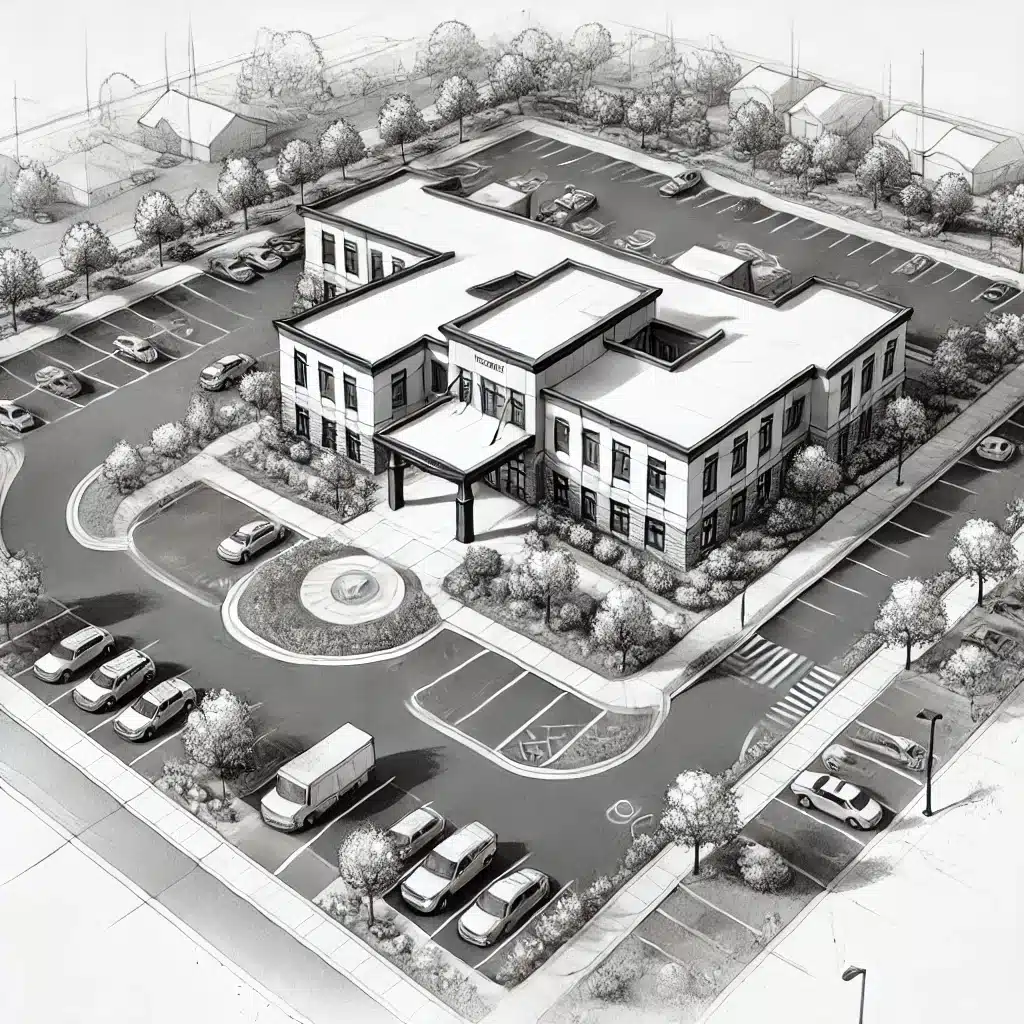Benefits of Partnering with a Real Estate Development Team: Optimizing Behavioral Health Facilities Through Strategic Partnerships


Partnering with a specialized real estate development team is one of the most effective ways to navigate the complexities of developing behavioral health facilities. Such partnerships bring together a range of expertise, resources, and networks that enable healthcare providers to optimize facility design, reduce costs, and enhance overall project success. Collaborating with an experienced team ensures that projects align with strategic goals and meet the unique needs of the communities they serve. Here’s an expanded look at the numerous benefits of collaborating with a real estate development team and how it can transform behavioral health facility development.
1. Access to Specialized Expertise in Healthcare Real Estate
Developing a behavioral health facility involves unique challenges, such as adhering to rigorous healthcare regulations, integrating specific safety features, and designing environments that promote healing and well-being. A real estate development team with healthcare expertise understands these nuances and has the knowledge to address the specific requirements of behavioral health projects. This includes compliance with ADA accessibility, HIPAA privacy standards, and state licensure regulations, all while creating functional and therapeutic environments.
2. Streamlined Project Management and Coordination
Managing behavioral health facility development is a complex, multi-phase process involving site selection, design, construction, permitting, and licensing. A real estate development team acts as the project manager, overseeing every phase and aligning all parties toward the same goals. Comprehensive project management minimizes delays, reduces costs, and keeps projects on track and within budget, allowing healthcare providers to focus on delivering quality care.
3. Maximizing Cost Efficiency Through Strategic Planning
Cost efficiency is critical in real estate development. A specialized team can identify cost-saving opportunities, such as value engineering, selecting cost-effective materials, and negotiating favorable terms with contractors and suppliers. Strategies like adaptive reuse of existing structures, implementing energy-efficient systems, and optimizing construction methods further help balance high-quality construction with budget constraints.
4. Enhanced Compliance and Risk Management
Healthcare facilities face a complex regulatory landscape, including building codes, safety standards, patient privacy laws, and environmental regulations. Non-compliance can lead to fines, delays, or operational challenges. A specialized team ensures all aspects of facility design, construction, and operation meet or exceed regulatory requirements, reducing the risk of non-compliance and ensuring readiness for licensing and certification.
5. Leveraging Strong Vendor and Contractor Relationships
Experienced development teams have established networks of trusted vendors, suppliers, and contractors. These relationships ensure quality materials, competitive pricing, and adherence to construction timelines. Strong vendor partnerships also help mitigate supply chain disruptions and delays, enabling projects to proceed efficiently and cost-effectively.
6. Access to Innovative Design and Construction Approaches
Behavioral health facility design continues to evolve, driven by advances in treatment methods, patient-centered care, and technology. A specialized team can incorporate the latest trends, such as trauma-informed care environments, biophilic design principles, and telehealth integration. Innovative designs enhance patient well-being, improve staff efficiency, and ensure adaptability for future needs.
7. Faster Time to Market
Delays in facility development can lead to lost revenue and missed opportunities to serve patients. A real estate development team streamlines the process, handling permitting, contractor scheduling, and construction oversight to minimize delays. Efficient project management ensures faster time to market, allowing facilities to begin operations sooner.
8. Creating Facilities That Enhance Patient Outcomes
The design of behavioral health facilities directly impacts patient outcomes. Features such as natural light, calming colors, private spaces, and areas for group activities reduce anxiety, promote healing, and improve treatment adherence. Using evidence-based design principles, facilities can support recovery and well-being, aligning with providers’ missions to improve mental health care.
9. Navigating Community Engagement and Public Relations
Community support is vital for behavioral health facilities. Concerns about safety, stigma, and property values can create opposition. Proactive engagement with local stakeholders, community leaders, and residents fosters understanding and support for new facilities. Transparent communication and education about the facility’s benefits build trust and ensure smoother development processes.
10. Planning for Future Growth and Scalability
Behavioral health facilities must adapt to changes in patient demographics, treatment modalities, and regulations. Flexible designs that allow for expansion, reconfiguration, and technology upgrades ensure long-term viability. Incorporating scalability into initial designs positions facilities to respond effectively to future challenges and opportunities.
11. Reducing the Administrative Burden on Healthcare Providers
Healthcare providers face significant administrative work during facility development, from zoning and permitting to managing contracts and compliance. A specialized development team handles these tasks, allowing providers to focus on patient care without being overwhelmed by project complexities.
12. Enhancing Financial Viability and Sustainability
A specialized team optimizes financial performance by identifying profitable service lines, maximizing revenue, and managing costs. Financial feasibility studies and data-driven analysis ensure facilities are designed to meet market demand while achieving financial sustainability. Strategies to optimize payer mix, increase patient volume, and reduce operational costs help facilities thrive in competitive environments.
Partnering with a specialized real estate development team offers healthcare providers the support needed to navigate the complexities of behavioral health facility development. From expertise in compliance and innovative design to cost efficiency and community engagement, these partnerships create facilities that meet market demands, enhance patient outcomes, and achieve strategic goals. By collaborating with experts, providers can focus on their mission and build high-quality facilities that serve patients and communities effectively.

